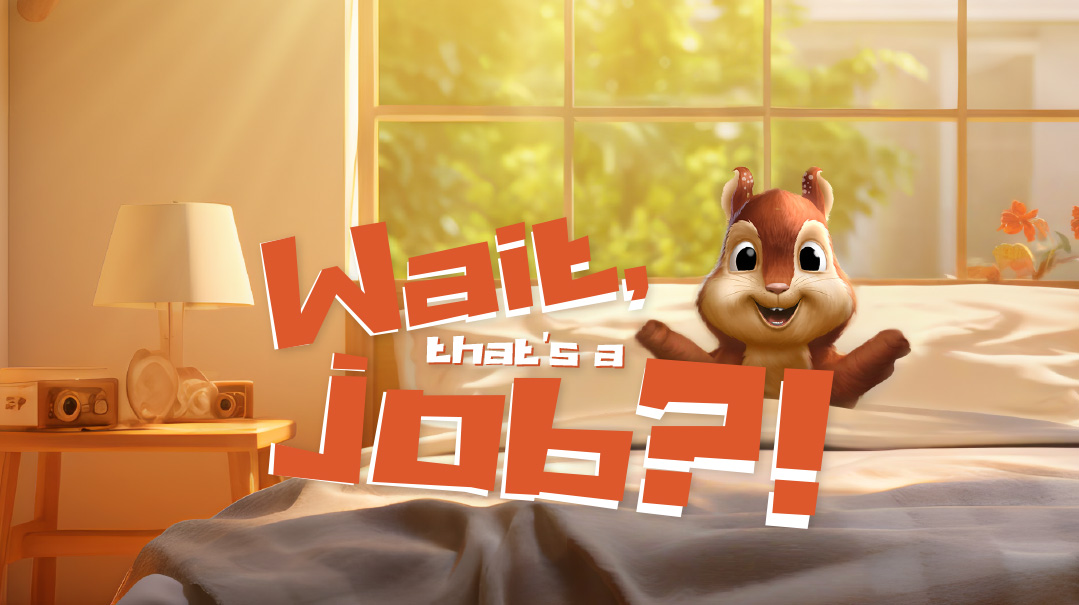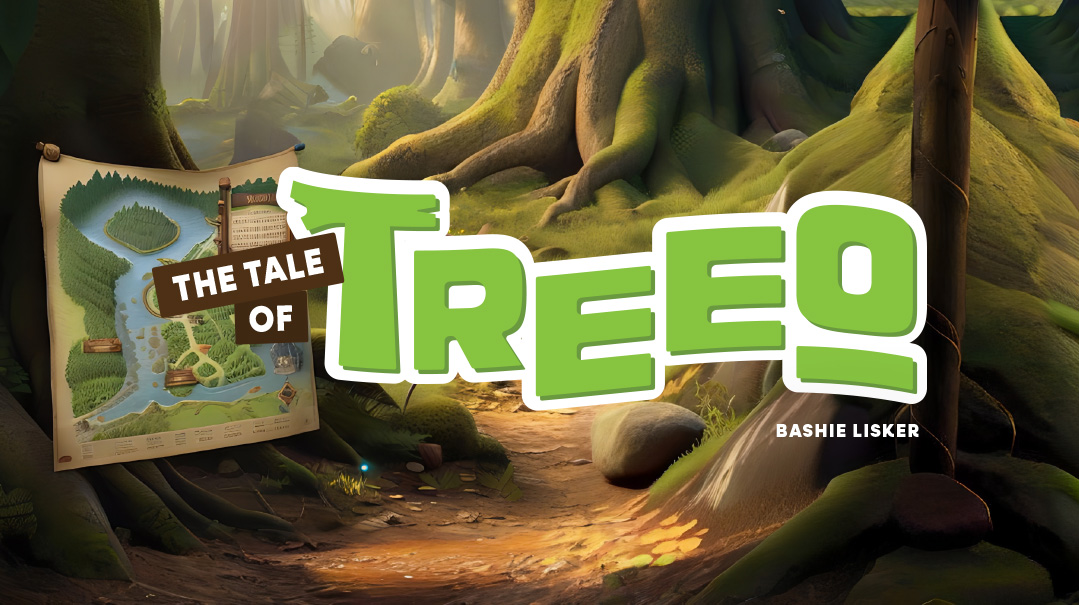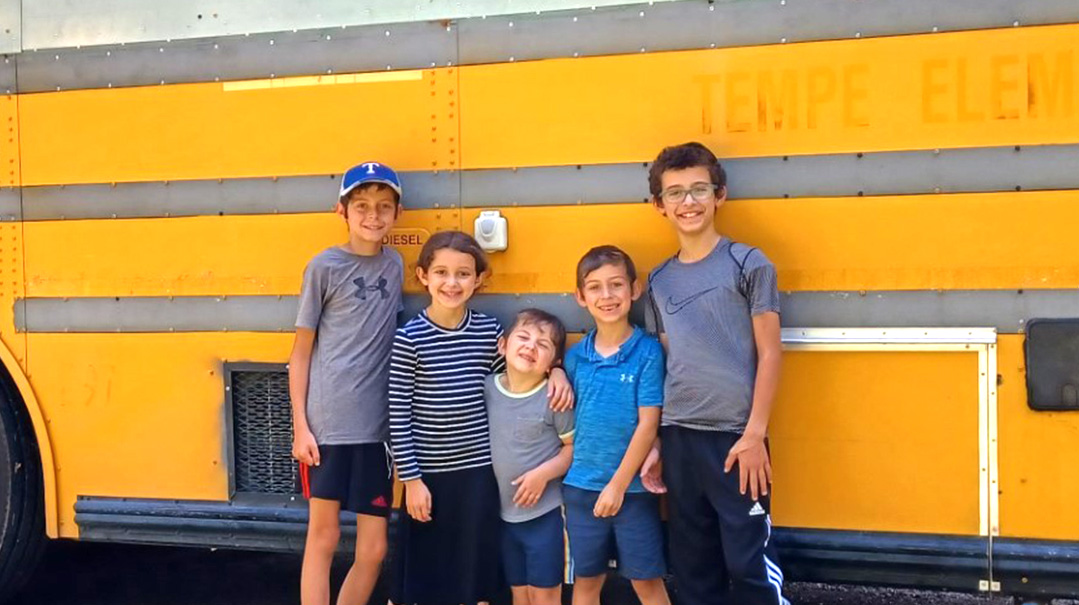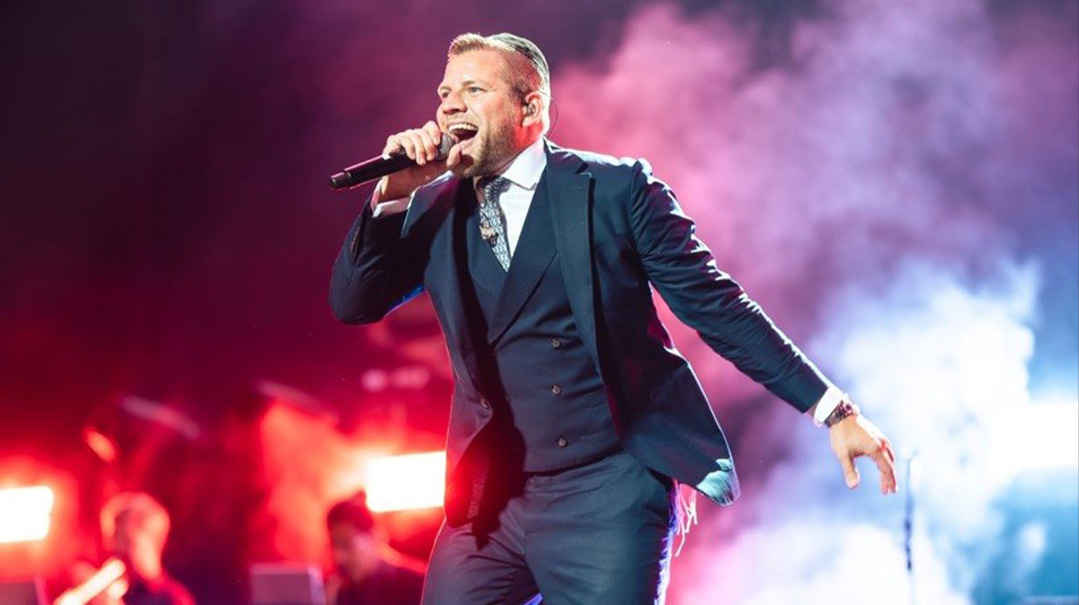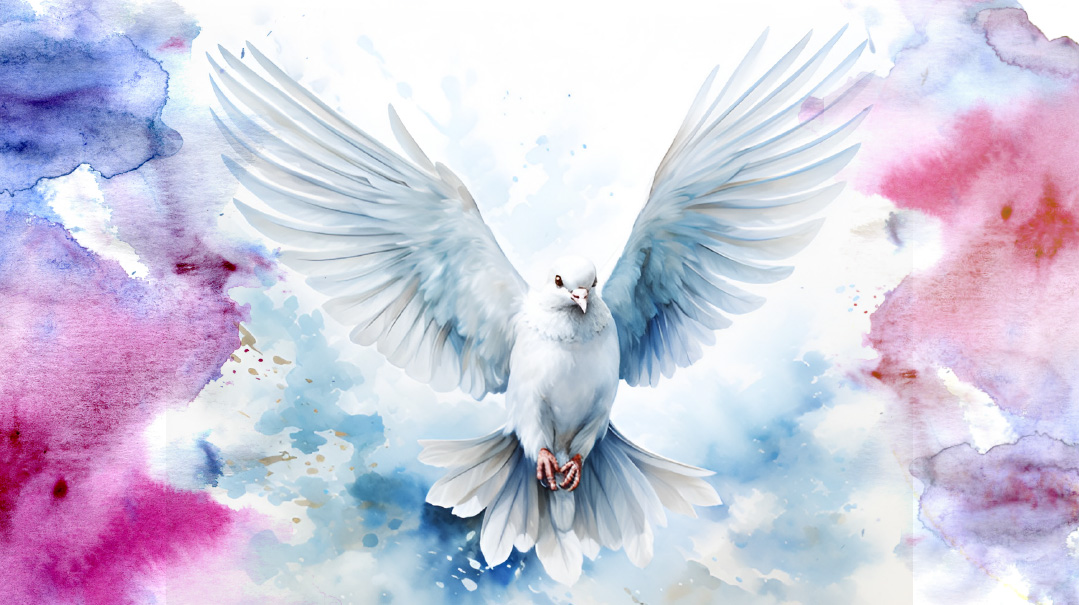My Special Uncle
| April 3, 2023I’m sure your uncles (and aunts!) are also special people. But they aren’t special in the same way my uncle is. My uncle’s name is Ezra. He is 13 years old, and he has Down syndrome
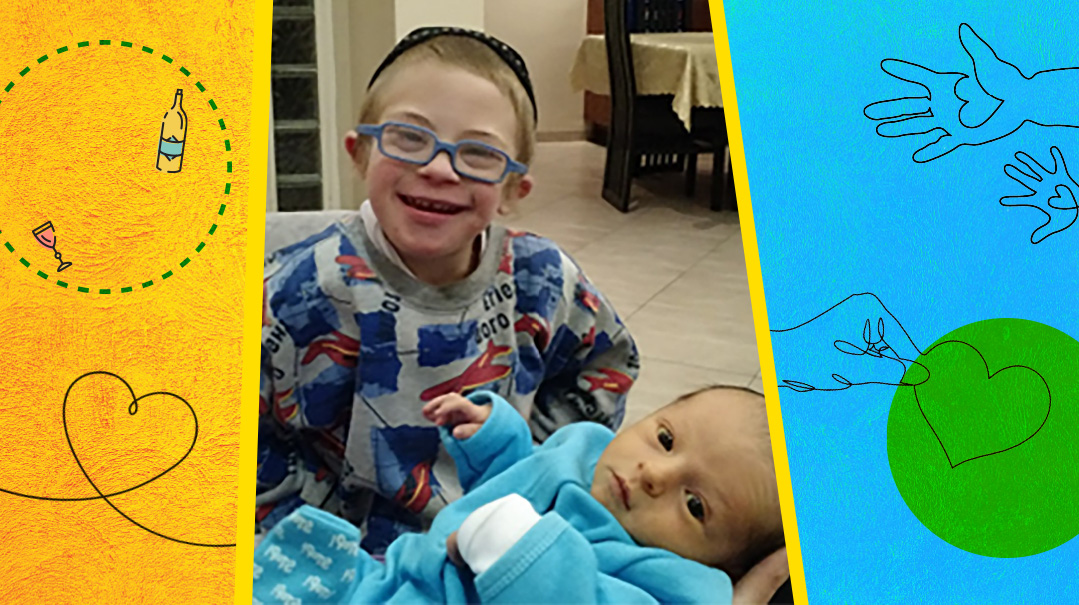
Family is a wonderful thing, and every member of a family is important. Relatives are a gift from Hashem, and did you know that not everyone has a lot of relatives? If you have grandparents, aunts, and uncles, then you are very lucky indeed. But not all aunts and uncles are the same. Some kids have more unique relatives. Read on to hear a young boy share about a special member of his family.
Hi, My name is Shaya. I’m in second grade, and I’m the oldest in my family. I have two little sisters. My mother is also the oldest in her family. Her brothers and sisters are my aunts and uncles.
Nothing like Family
Some people have aunts and uncles that are older and married, and often have their own children. I’m sure they are great, too, but they probably are not as fun as single aunts and uncles. Those of us who have parents with younger, unmarried siblings know how great that can be! Younger, unmarried aunts and uncles (especially teenagers or even younger) often have a lot of energy to play with their nieces and nephews, and even give them presents, prizes, or treats. They aren’t busy with their own kids and families, so they usually have more time for us.
Only one of my mother’s siblings is married — her brother — and he has one baby, so I only have one cousin on my mother’s side. But having a bunch of young aunts and uncles makes up for not having lots of cousins! I love going to my Saba and Savta’s house for Shabbos because they have great toys and books, and there is always someone available to play with or read to me. And when we go to the park, my uncles come along, and they make it so much more fun.
My Uncle
Something unique about me is that I have a special uncle.
Now I’m sure your uncles (and aunts!) are also special people — they probably play with you and read to you, too. But they aren’t special in the same way my uncle is. My uncle’s name is Ezra. He is 13 years old, and he has Down syndrome.
You might know a kid in your community who has Down syndrome. Maybe you even have a classmate, or a neighbor, or a cousin who has it. My uncle with Down syndrome is my mother’s younger brother.
What is Down Syndrome?
You might be wondering what Down syndrome is and what makes people with Down syndrome special.
That’s a great question! In fact, it’s such a good question that my mother wrote a book about it called Our New Special Baby (Feldheim, 2013). It’s for kids who have a new baby in their family who was born with Down syndrome. We have the book at home, in English and in Hebrew, and my mother has been reading it to me and my sisters since we were really little. So I grew up knowing what Down syndrome is. My mother says that when I was really little, just two years old, I already recognized other people with Down syndrome and would point them out to her!
If you’ve never heard of Down syndrome, you might not recognize people who have it. But all people with Down syndrome have similar features, so they are pretty easy to spot. They have beautiful, slanted eyes, small ears, somewhat thicker necks (which my mother’s book says “are perfect for tickling!”), and their tongues sometimes come out of their mouth. People with Down syndrome are often smaller or shorter than other people. But they’re not only different physically. They also think and develop differently than typical kids.
Usually, kids with Down syndrome develop more slowly. So there are things that I learned to do before my uncle Ezra did, like reading, for example. Ezra knows how to read, but even though I am much younger than him, I can read way better and faster. That’s because it’s harder for him to learn new things than it is for me. Down syndrome makes almost everything harder for him: learning to speak, walk, read, write, and lots of other things, too. By the time I was born, Ezra was five, and he was already walking. But my mother says he wasn’t talking so well yet. Now he speaks really well! Sometimes he’s a little hard to understand, but I get him. In fact, I understand him better than a lot of grown-ups.
More the Same than Different
Yes, it is true that Ezra and kids with Down syndrome are different from regular kids in lots of ways. But you know something? They are more the same than different.
Ezra loves to play, just like other kids. He is lots of fun in the park, and is a great climber! We play together with cars and Playmobil. And, just like me, he enjoys books. I’m not sure he really reads them like I do, but he loves looking at pictures, and he absolutely loves when people read to him. He likes music and dancing a lot; my mother said many kids with Down syndrome enjoy music and dancing. He lights up when the music goes on, and he can sing and dance for ages. He enjoys jokes. And he loves to learn with my Abba and with my Saba. Whenever he sees my Abba learning, he wants to learn together with him. Ezra is also very good with babies. He is gentle, and he likes to make my little sister laugh, just like I do.
Also, Ezra has feelings. And his feelings can get hurt. He doesn’t like when people laugh at him, and he becomes sad when he feels people are making fun of him. He also gets very worried about things like wars and earthquakes, and he doesn’t like when people talk about them. I know other kids like that, too, and they don’t have Down syndrome. In many ways, people with Down syndrome are just like other kids!
Sometimes, People with Down Syndrome are Different
Sometimes Ezra does funny things that aren’t so regular for someone his age. Like he likes to wave around flags, or if he doesn’t have a flag, then a string of Clics, and sit on the floor and sing. He already had his bar mitzvah, so that’s not so typical. Often, he acts younger than his age. My mother says that is also because of his Down syndrome.
Occasionally, Ezra does something dangerous. Because he has Down syndrome, he doesn’t understand danger quite the same way that other kids do. He may wander away without telling anyone, or play with dangerous things like fire or knives. I am very responsible. If I see Ezra doing something dangerous, I make sure to tell an adult right away. I understand things that Ezra doesn’t, but that’s okay. He is still great to be with.
A Special Book
I like my mother’s book, Our New Special Baby, because it explains Down syndrome very clearly. It’s nice that I understand Down syndrome and all the ways it affects Ezra. But it’s not really a book for me, because Ezra is not my brother, and also, Ezra is not a baby.
That’s why I was super excited when my mother said we got a new book! This book isn’t called Our New Special Baby. It’s called My Special Uncle. And my mother read it to me (because I read well in Hebrew, but I don’t really read English yet).
Guess what? This book is all about me. It has a kid who looks around my age. And he also has a special uncle. It doesn’t say “Down syndrome” in the book, but in all the pictures, you can see that his special uncle is special the same way mine is; he has Down syndrome, too! Even better, all of the things that are written there are so true for me — it made me feel good. The kid in the book also thinks his uncle is great, but he also talks about the differences between a regular uncle and a special uncle. Most importantly, the book points out that we have to respect our special uncles because they are older than us — but we also have to remember that they sometimes act younger than they are, and to be aware of that. That’s why Ezra can’t help me cross the street safely, like my other young uncle can. That’s something I need to know. Reading this new book made that easier to understand.
Mrs. Ahava Ehrenpreis, the author of My Special Uncle, points out that the book is meant to help everyone accept individuals whose behaviors may be difficult to understand. It’s not just for those who have a special family member! Nowadays everyone often sees someone special in shul or at a friend’s house, or even just walking down the street.
Tips for Handling the Special People in Our Lives
From: Ahava Ehrenpreis, author of My Special Uncle
If someone is behaving in a way that bothers you, that is disturbing, or that you think is strange, bring it up with your parents or with another trusted adult.
If someone feels angry or sad often, remember that most times, it isn’t about you. Their feelings are coming from inside them. And many times, they themselves might not understand why they are having those feelings.
It’s always kind to be friendly and to smile at others, but remember that not everyone will respond the way we expect them to. Keep in mind that the other person may be feeling sad, mad, or afraid, and might not have even noticed your smile or be able to respond appropriately. (Doesn’t than happen to you sometimes, too?)
Sometimes you may meet, or know, a person who looks like a grown-up, but might not act like one. You don’t need to be afraid. That is the way Hashem made some people. Don’t we all want to be accepted the way Hashem created us?
Did you know?
Sign language is not only for people who have trouble hearing. Some people with special needs have a hard time talking. It could be because of Down syndrome, which causes weak muscle tone, especially in the mouth area (this is also why it is harder for people with Down syndrome to keep their tongues in their mouths). Often, people with difficulty speaking can communicate in other ways, like through an iPad with a communication program, or through sign language using their hands.
It is not respectful to call someone a “Down’s kid.” Rather say, “A kid who has Down syndrome,” just like you wouldn’t say an “allergy kid,” but instead “a kid who has allergies.” Because a person is so much more than a diagnosis!
Other Kinds of Special
Like I said, the book doesn’t mention Down syndrome. I think that’s because Down syndrome isn’t the only kind of special uncle you can have. There are other people in the world who are a little different. And they might have brothers and sisters who also got married and had kids, and now they are uncles, too! I guess that even though they might not have Down syndrome, there might be other similarities. Like, maybe, we need to respect them, but also be aware that they aren’t quite like our other older uncles and aunts.
The new book says that the word special means extra nice, like a treat, a birthday, or a Yom Tov. My mother explained to me that this is true, but also, the word “special” can be used like the word “unique,” or special for that person. “Special needs” is when a person requires things that most people don’t, because he might learn differently, or walk differently, or see differently. He might need more help than others, like slower learning, or a wheelchair, or braille writing instead of text (braille is a special, raised alphabet for people with vision issues that they read with their fingertips instead of with their eyes). I’m learning that while “special” can indicate a person with “special needs” — it also means special as in nice and wonderful.
Our job is to always find the nice and wonderful things about the special people in our lives.
‘Cause you know what? Everyone in the world has parts that are awesome and parts that are annoying or frustrating.
That doesn’t make anyone less special.
I love you, Ezra. You’re special to me, and I’m glad that you’re my uncle.
(Originally featured in Mishpacha Jr., Issue 956)
Oops! We could not locate your form.

